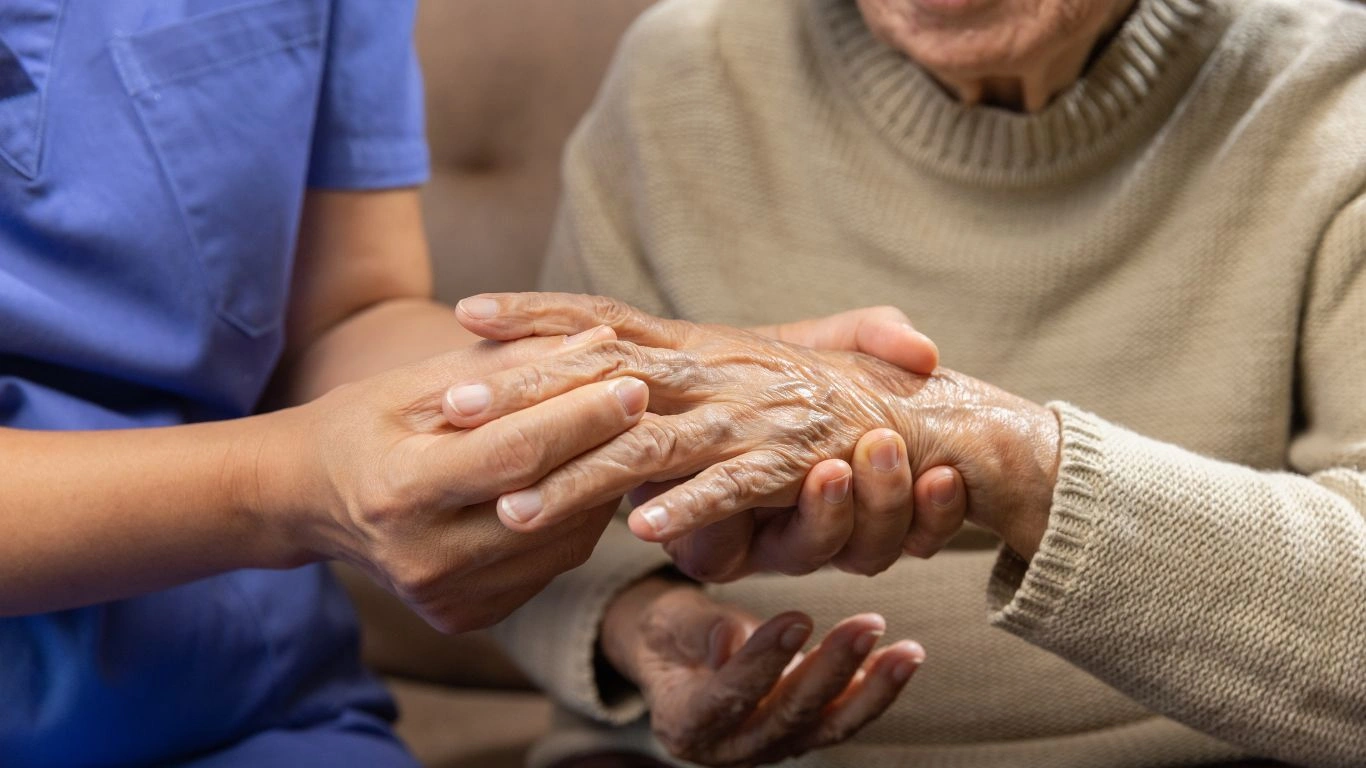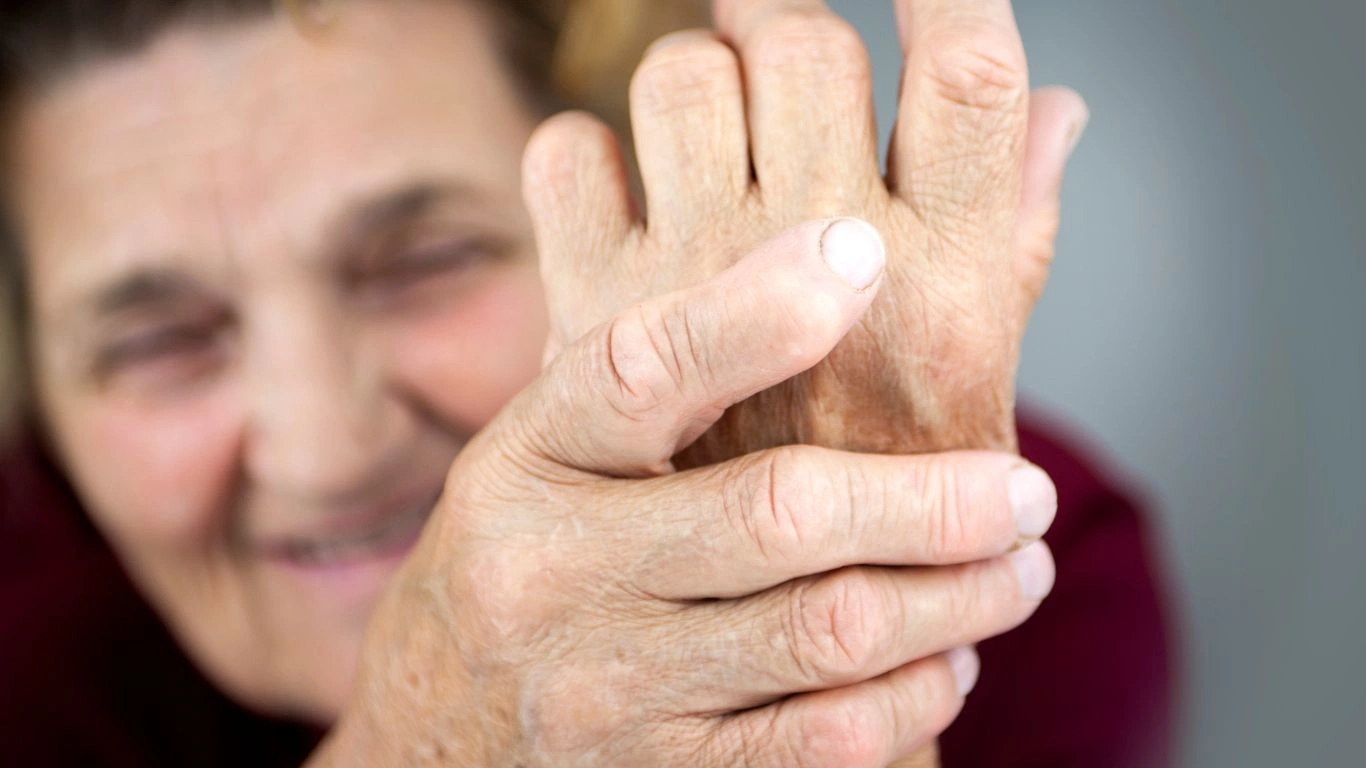Proven Strategies for Rheumatoid Arthritis: Reduce Stress for Joint Relief
Living with rheumatoid arthritis (RA) can be a real challenge, both physically and mentally. As a Rheumatology Nurse Practitioner, I’ve seen first-hand how RA not only affects the joints but also how stress can compound the pain and inflammation. That’s why I wanted to take a deeper dive into how reducing stress can lead to joint relief for those managing rheumatoid arthritis. Stress, in its many forms, can exacerbate the symptoms of RA, making it even harder to manage the condition. Let’s talk about how reducing stress can help ease joint discomfort and improve your quality of life.
What is Rheumatoid Arthritis and How Does Stress Impact It?

Rheumatoid arthritis is an autoimmune disease where the body’s immune system mistakenly attacks the synovial lining of the joints, leading to inflammation, pain, and eventual damage to the affected joints. It’s different from osteoarthritis because it affects both sides of the body and is characterized by flare-ups of severe symptoms, followed by periods of relative calm. However, the symptoms never fully go away and can become progressively worse over time.
Now, you might be wondering, how does stress play a role in all of this? As someone who’s worked with numerous patients dealing with RA, I can tell you that stress doesn’t just affect your mental state—it can also directly impact your physical health, including the severity of your RA symptoms. When you’re stressed, your body releases cortisol, a hormone that in small amounts is helpful, but chronic stress leads to prolonged cortisol exposure. This constant state of stress can promote inflammation in the body, triggering flare-ups and making existing symptoms even worse.
Understanding the Stress Response in Rheumatoid Arthritis
The body’s stress response is a complex system that’s designed to protect you in times of danger or threat. This fight-or-flight response involves the release of stress hormones like cortisol and adrenaline. While these hormones are great for helping you deal with immediate threats, they can become problematic when you’re under constant stress.
In patients with rheumatoid arthritis, chronic stress can lead to heightened inflammation in the joints, making them more susceptible to damage. Additionally, stress can affect other aspects of life that contribute to joint health, such as sleep and diet. Poor sleep and a poor diet can, in turn, worsen RA symptoms, creating a vicious cycle.
Reducing Stress for Joint Relief: Why It Works

So, how can we break the cycle and start using stress reduction techniques for joint relief? There are a variety of methods, from mindfulness practices to physical activity, that can help reduce the stress levels in your body and bring significant relief to your joints. Let’s take a look at a few of these techniques and why they are so effective in managing RA.
Mindfulness and Meditation
One of the simplest and most effective ways to manage stress is through mindfulness and meditation. These practices help you focus on the present moment, calm your mind, and reduce the physiological effects of stress. Mindfulness has been shown to lower cortisol levels, reduce pain perception, and even help with sleep—something that many RA sufferers struggle with.
Personally, I’ve seen firsthand how taking just a few minutes out of the day to practice mindfulness can significantly lower stress levels. Meditation doesn’t have to be complicated—it can be as simple as focusing on your breath for a few minutes each day. The goal is to create a calming effect that can counterbalance the stress that RA can bring into your life.
Physical Activity and Exercise
Exercise might seem like the last thing you want to do when your joints are in pain, but it’s one of the most effective ways to manage both stress and RA symptoms. Regular physical activity promotes the release of endorphins, your body’s natural painkillers, and helps reduce inflammation in the body.
Low-impact exercises like walking, swimming, or yoga are especially beneficial for RA patients. These activities help improve joint mobility, reduce stiffness, and decrease pain. In my experience, incorporating even a short walk or a gentle yoga session can do wonders for stress management and joint relief. Plus, physical activity can improve your sleep, which is crucial for managing RA symptoms over the long term.
How Stress Impacts Your RA Treatment Plan
It’s not just your joints that feel the effects of stress; it can also interfere with your treatment plan. When you’re stressed, it can affect your ability to stick to your medications, appointments, or lifestyle changes. Some people might forget to take their medication, skip a physical therapy session, or avoid healthy foods—all of which can have an impact on how well you manage RA.
Managing stress is just as important as any physical treatment. It’s not enough to just focus on medication and physical therapy. Without addressing the stress that exacerbates RA symptoms, you might find that your condition is harder to manage in the long term.
Stress and Coping Mechanisms
Another aspect of stress management is developing healthy coping mechanisms. Stressful situations will inevitably come up, but how you react to them makes all the difference. People with RA often face additional stressors, such as flare-ups or struggles with mobility, which can affect their mental well-being. By having a set of coping tools—whether it’s talking to a supportive friend or practicing deep breathing exercises—you can reduce the emotional impact of these challenges and better manage your stress levels.
Overall, reducing stress is an essential part of managing rheumatoid arthritis. The less stress you experience, the fewer flare-ups you’ll have, and the more effective your treatments will be. It’s not about eliminating stress entirely (which is pretty much impossible), but about learning how to manage it so that it doesn’t get the upper hand when it comes to your health.
Nutrition’s Role in Stress Reduction for Joint Relief

When managing rheumatoid arthritis, what you put into your body can make a significant difference not only in reducing inflammation but also in managing stress levels. We’ve already touched on how stress can exacerbate RA symptoms, but what about the foods that could help reduce both stress and joint pain?
As someone who works closely with RA patients, I’ve seen how a healthy diet can improve both mental and physical health. For instance, foods rich in antioxidants and omega-3 fatty acids can help reduce inflammation, while others can boost your mood and decrease anxiety, a major contributor to stress. Let’s dive into some foods and nutrients that should be part of your stress-reducing, RA-friendly diet.
Anti-Inflammatory Foods
Inflammation is the cornerstone of rheumatoid arthritis, so choosing foods that fight inflammation is essential. Omega-3 fatty acids, found in fatty fish like salmon and sardines, are known for their anti-inflammatory properties. These can help reduce joint stiffness and pain, and they also have the added benefit of promoting a healthier brain, which can help with stress management.
Besides fatty fish, look to foods like leafy greens, berries, nuts, and seeds. These are rich in antioxidants, which combat oxidative stress in the body. This can help reduce both physical inflammation and mental stress, creating a healthier environment for your joints to heal. I’ve always emphasized to my patients that small, consistent changes in their diet can have long-term benefits in managing RA symptoms.
Magnesium-Rich Foods for Relaxation
Magnesium is a mineral that plays a significant role in the body’s stress response. It helps regulate the production of cortisol, the stress hormone, and promotes relaxation. RA patients often experience muscle tension, which can be worsened by stress. Magnesium-rich foods like spinach, avocado, almonds, and bananas can be incredibly beneficial for both reducing muscle tension and stress.
Incorporating more magnesium into your diet can help prevent the physical discomfort caused by stress, which in turn helps manage RA symptoms. Personally, I recommend trying to add a handful of almonds as a snack or adding spinach to your smoothies as an easy way to up your magnesium intake.
How Exercise Can Be a Stress-Buster for RA

If you’re living with rheumatoid arthritis, it might feel daunting to think about adding exercise into your routine. But trust me, exercise doesn’t have to mean hours at the gym or intense training sessions. In fact, physical activity can be one of the most effective ways to reduce stress and alleviate joint pain, especially for RA patients.
Exercise releases endorphins, your body’s natural mood-boosting hormones. These hormones can help combat the physical and emotional toll that RA and stress often take on your body. When you exercise, you not only improve your physical health but also give your mental health a much-needed boost. This creates a more balanced, positive outlook, which is essential for managing both RA symptoms and stress.
Low-Impact Exercises: Gentle on Joints, Powerful for Stress Relief
Low-impact exercises are ideal for people with rheumatoid arthritis because they don’t put too much strain on the joints while still providing excellent benefits. Activities like swimming, cycling, or yoga can be particularly effective for improving joint mobility, reducing pain, and decreasing stress levels. These exercises also promote relaxation, helping your body shift out of a stress response and into a calmer, more balanced state.
I’ve seen how just a 20-30 minute swim or gentle yoga session can work wonders for RA patients, not only in terms of reducing joint stiffness but also in relieving mental stress. The beauty of these exercises is that they’re accessible to almost anyone, regardless of fitness level, and can be easily adapted to suit your body’s unique needs.
Yoga and Mind-Body Practices for Stress Management
Speaking of yoga, I can’t stress enough how helpful this practice can be for both managing RA symptoms and reducing stress. Yoga is not just about flexibility—it’s a holistic practice that engages your body, breath, and mind. Through mindful movement and controlled breathing, yoga helps calm the nervous system and reduce stress levels. It’s also an excellent way to improve flexibility and strength, which can alleviate joint pain associated with RA.
For those who may be new to yoga, I recommend starting with a gentle class or even trying some online videos at home. Poses like child’s pose, cat-cow, and gentle twists can be incredibly beneficial for stretching the joints, improving circulation, and reducing muscle tension caused by stress.
Building a Stress Management Routine: Consistency is Key

One of the most important things I tell my patients is that managing stress is not a one-time event—it’s a lifestyle change. You need to build a routine that incorporates various stress-reducing activities into your daily life. Consistency is key here. The more consistently you practice stress management techniques, the better your RA symptoms will be in the long term.
Start small—incorporate one or two stress-relieving activities into your day and gradually build up over time. Whether it’s a short meditation session in the morning, a brisk walk after lunch, or a relaxing yoga practice before bed, making these practices a regular part of your day will make a big difference in managing both stress and rheumatoid arthritis.
Remember, stress reduction isn’t just about feeling good in the moment. It’s about building long-term habits that help your body and mind stay balanced, so you can better manage your RA symptoms. With time, you’ll start to notice not only less stress but also a reduction in joint pain and an improvement in overall well-being. It’s a win-win situation!
Creating a Holistic Stress Reduction Plan for RA Management

Now that we’ve explored various ways to reduce stress and improve your overall well-being with rheumatoid arthritis (RA), it’s time to talk about creating a holistic plan. As someone who’s worked with many patients in the rheumatology field, I can tell you that the key to long-term stress and RA management is consistency and balance. It’s not just about finding one method that works—it’s about combining different strategies to create a personalized stress management plan that fits your life.
Everyone’s experience with rheumatoid arthritis is different. What works wonders for one person might not be as effective for another. That’s why it’s essential to take a holistic approach, incorporating both mind and body practices that can reduce stress, promote relaxation, and improve joint health. Let’s go over how you can build your own comprehensive stress reduction plan, and I’ll share some tips from my own experience helping patients along their journey.
Combining Stress-Relieving Activities for Maximum Impact
When it comes to managing both stress and RA, the more tools you have in your arsenal, the better. A combination of physical exercise, mindfulness practices, healthy eating, and social support can provide a solid foundation for improving your physical and mental health.
For example, I often recommend that my patients begin their day with a short meditation or mindfulness practice. This can set a positive tone for the day, help reduce anxiety, and lower cortisol levels right from the start. Then, incorporating some form of gentle movement, such as yoga or a light walk, can help maintain joint mobility and reduce stress throughout the day.
As the day progresses, it’s important to take breaks to avoid burnout. This could mean stepping away from a stressful work environment or taking a few minutes to do deep breathing exercises to reset your stress levels. And don’t forget to prioritize nutrition—eating anti-inflammatory foods and staying hydrated can give you the energy you need while also keeping inflammation at bay.
As the evening approaches, focus on winding down with a calming routine. This could include a warm bath, reading, or light stretching. The goal here is to let go of the day’s stresses so that you can get a good night’s sleep, which is essential for managing RA and reducing stress.
Embracing Mental Health for RA Management

Many people with rheumatoid arthritis face not only physical pain but also emotional and mental stress. Living with a chronic illness can take a toll on your mental health, and it’s not uncommon for people with RA to experience feelings of frustration, sadness, or even depression. This is why it’s so important to address mental health in your stress management plan.
One thing I always tell my patients is that mental health is just as important as physical health when it comes to managing RA. When you’re feeling mentally and emotionally balanced, you’re better equipped to deal with the physical challenges of RA. The connection between the mind and body is incredibly powerful, and by focusing on both, you can create a more resilient approach to managing your symptoms.
Therapeutic Support for Mental Wellness
In some cases, speaking to a therapist or counselor can be a vital part of managing the emotional side of RA. Cognitive-behavioral therapy (CBT) is particularly effective for helping people reframe negative thoughts and manage stress. I’ve seen patients benefit greatly from working with a therapist to process the emotional toll of living with a chronic condition like RA.
It’s also important to build a support system. Friends, family, and online communities can provide valuable emotional support. Sharing your struggles and connecting with others who understand what you’re going through can be incredibly comforting. It can also reduce feelings of isolation, which is a common challenge for people living with rheumatoid arthritis.
Staying Socially Active to Combat Stress
Social connections are another essential part of managing stress and maintaining mental health. While it’s important to rest and care for your body, it’s equally important to stay socially engaged and connected with loved ones. Isolation can lead to increased stress and exacerbate symptoms of RA, so try to make time for social activities—even if it’s just a phone call with a friend or a visit from family.
Many RA patients find that participating in support groups—either in person or online—helps them feel less alone and more empowered to deal with the stresses of living with chronic illness. These communities can offer advice, share experiences, and provide encouragement during difficult times.
Seeking Professional Help: When to Reach Out
While self-care is incredibly important, there are times when professional help is necessary. As a nurse practitioner in the rheumatology field, I always tell my patients that it’s okay to seek additional support when things feel overwhelming. Whether it’s a mental health professional to help with anxiety or depression, a physical therapist to improve joint mobility, or a nutritionist to guide you in making dietary changes, don’t hesitate to reach out for help.
In fact, reaching out for help is one of the best ways to manage stress in the long term. Professionals can provide personalized guidance and strategies tailored to your specific needs, which can make a world of difference in both managing RA symptoms and improving your quality of life.
References
Disclaimer: The information provided in this article is for educational purposes only and is not intended as medical advice. Always consult with a healthcare professional for diagnosis and treatment specific to your condition.

Tarra Nugroho is a dedicated Nurse Practitioner with a strong foundation in family and preventive care. She brings both compassion and clinical expertise to her practice, focusing on patient-centered care and health education. As a contributor to Healthusias.com, Tarra translates medical knowledge into clear, empowering articles on topics like women’s health, chronic disease management, and lifestyle medicine. Her mission is simple: help people feel seen, heard, and informed—both in the clinic and through the content she creates. When she’s not caring for patients, Tarra enjoys weekend hikes, plant-based cooking, and curling up with a good health podcast.






